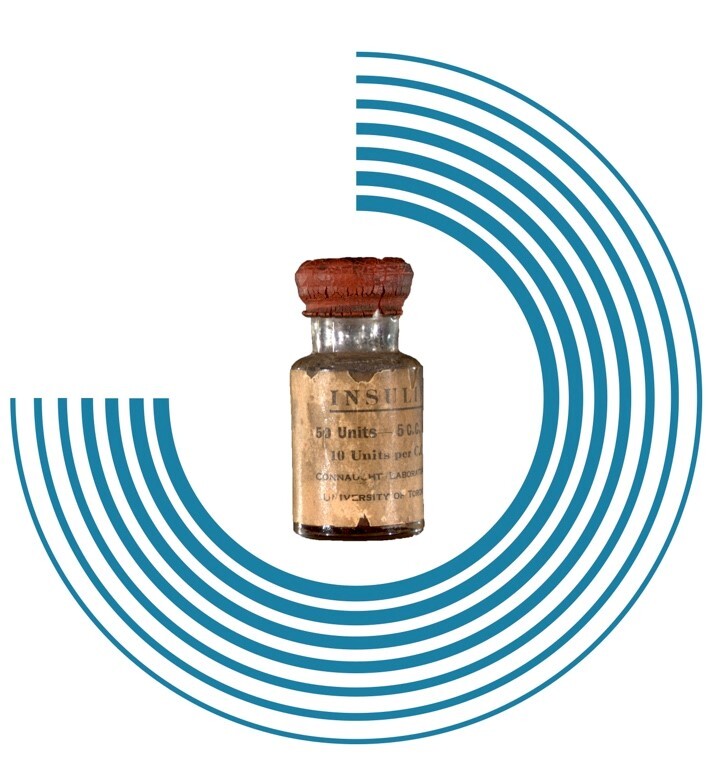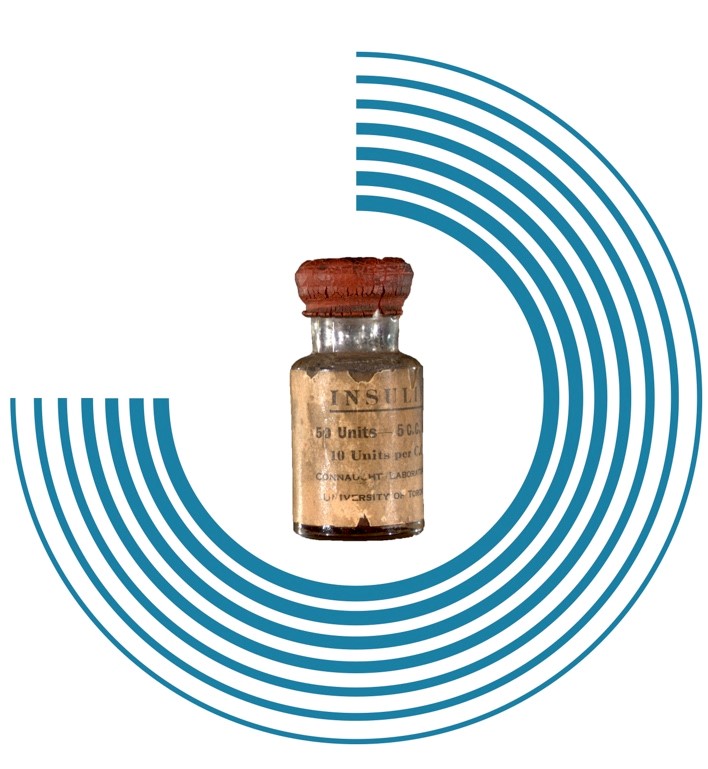Main Second Level Navigation
Finding time to celebrate amid chaos: Insulin 100

 I know, it is really bad out there. Even so, we should not let once in a lifetime moments of celebration slip by without recognition.
I know, it is really bad out there. Even so, we should not let once in a lifetime moments of celebration slip by without recognition.
In April 2021, the Departments of Medicine and Physiology held two major and outrageously successful events—the April 14th, 100 Years of Insulin: Celebrating its impact on our lives Public Celebration and April 15/16th, Insulin 100 Scientific Symposium—to celebrate a century of health innovation with patients, donors, societies and our scientific colleagues internationally. Even the World Health Organization showed up!
Let me take this opportunity to thank the members of our department and our colleagues in Physiology who worked tirelessly over years—yes years—to plan for and execute these celebrations. In particular, I want to congratulate Jackie James, Gary Lewis and Diabetes Action Canada for their leadership of the Public Celebration, and Dan Drucker and Heather Dow of Events & Management Plus Inc. for stewardship of the Scientific Symposium. Many, many others participated, including Bernie Zinman, Pat Brubaker, Bruce Perkins, Catharine Whiteside and colleagues across Temerty Faculty of Medicine and the University of Toronto—thanks to all!
Both events exceeded expectations—a testament to the planning committees’ efforts and our people’s commitment to the discovery, translation and communication of knowledge that has, and will continue to, drive health care outcomes for our patients. Here are a few of the incredible results:
100 Years of Insulin: Celebrating its impact on our lives Public Celebration
- Number of registrants: 1,212
- Number of attendees: 504
- From across the globe: Participants from 44 countries attended, including: Canada, USA, United Kingdom, Argentina, Australia, Barbados, Belgium, Brazil, Chile, Colombia, Costa Rica, Cuba, Denmark, Ecuador, France, Ghana, Greece, Honduras, India, Italy, Japan, Kenya, Lebanon, Mali, Mexico, Moldova, Monte Negor, Nigeria, Oaxaca de Juárez, Paraguay, Peru, Philippines, Poland, Portugal, Puerto Rico, Qatar, Dominican Republic, Switzerland, Slovenia, South Africa, Trinidad and Tobego, Turkey, Uganda, and Venezuela.
Insulin 100 Scientific Symposium
- Number of registrants: 7,047
- Number of attendees: 1293 over the course of the two-day conference, with another 11,277 tuning in to watch pre-recorded lectures
From across the globe: Participants from more than 75 countries attended, including: Algeria, Argentina, Australia, Austria, Bahrain, Bangladesh, Belgium, Bermuda, Brazil, Bulgaria, Cambodia, Canada, Chile, Croatia, Cyprus, Czechia, Denmark, Egypt, El Salvador, Estonia, Finland, France, Germany, Ghana, Greece, Guatemala, Haiti, Hong Kong, India, Indonesia, Ireland, Israel, Italy, Japan, Jordan, Kenya, Kuwait, Latvia, Lebanon, Libya, Lithuania, Malaysia, Mexico, Montenegro, Netherlands, Nigeria, Norway, Oman, Pakistan, Paraguay, Peru, Philippines, Poland, Portugal, Puerto Rico, Qatar, Romania, Saudi Arabia, Singapore, South Africa, South Korea, Spain, Sudan, Sweden, Switzerland, Taiwan, Thailand, Tunisia, Turkey, Turks and Caicos Islands, United Arab Emirates, United Kingdom, United States, Uruguay and Uzbekistan.
April 2021 also saw our very own Dan Drucker, together with scientists Joel Habener and Jens Holst, recognized by receipt of the hugely important Canada Gairdner International Award , “for research on glucagon-like peptides that has led to major advances in the treatment of Type 2 diabetes, obesity and intestinal disorders”. In brief, their research resulted in the discovery of glucagon-like peptide hormones, GLP-1 and -2, and elucidated the mechanism by which these hormones influence glucose control through their effects on insulin and glucagon levels. These discoveries led to the development of novel therapeutics to control insulin secretion in Type 2 diabetes and obesity, the DPP-4 inhibitors, and GLP-2 analogues for the treatment of short bowel syndrome.
Both the discovery of insulin and Dan’s work on GLPs underscore the critical role of physician scientists in the translation of fundamental discoveries to clinical practice and, importantly, better outcomes for people.

